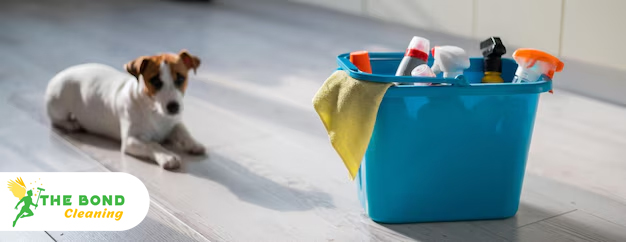Navigating End of Lease Disputes: Challenges and Considerations for Tenants in Australia
The end of a lease period is a significant milestone for tenants, marking the transition from one living arrangement to another. However, this transition is not always smooth, as disputes and cleaning challenges often arise between tenants and landlords. In this article, we will explore the common issues faced by tenants in Australia during the end of lease period, the potential disputes that may arise, and the cleaning expectations tenants should be aware of.
Understanding the End of Lease Process:
When a lease agreement comes to an end, tenants are typically required to return the property in the same condition it was in when they first moved in. This includes meeting cleanliness standards, repairing damages beyond normal wear and tear, and complying with the terms specified in the lease agreement.
Cleaning Expectations:
One of the most common sources of disputes between tenants and landlords is the condition of the property upon vacating. Australian tenants are often required to undertake thorough cleaning to ensure the property is returned in a presentable state. This may include tasks such as carpet cleaning, window washing, and general surface cleaning.
To avoid disputes, tenants should carefully review their lease agreement to understand the specific cleaning requirements outlined by the landlord or property management. Some landlords may provide a checklist of cleaning tasks that need to be completed, while others may have more general expectations. It is crucial for tenants to adhere to these guidelines to prevent disagreements during the final inspection.
Common Cleaning Challenges:
Despite tenants' best efforts, various challenges may arise during the cleaning process, leading to potential disputes. Some of the common cleaning challenges include:
Stains and Carpets: Stains on carpets and other flooring can be a major concern. Tenants should address any visible stains promptly and consider professional carpet cleaning services to meet the property's cleanliness standards.
Kitchen and Appliances: The kitchen, including appliances such as ovens and stovetops, often requires extensive cleaning. Grease and grime buildup can be stubborn, and tenants should allocate sufficient time and effort to ensure these areas are spotless.
Bathroom Maintenance: Mold and soap scum in bathrooms are frequent issues. Tenants should thoroughly clean tiles, grout, and other surfaces to prevent disputes related to hygiene and cleanliness.
Windows and Blinds: Cleaning windows and blinds can be a meticulous task. Tenants should ensure that all glass surfaces are streak-free and that blinds are free from dust and dirt.
Navigating Disputes:
The end of a lease can be a complex and challenging time for tenants. While many tenants aim for a smooth transition, disputes often arise between landlords and tenants over various issues, ranging from the return of the security deposit to property condition disagreements. In this article, we will explore the common challenges tenants face during the end of a lease in Australia and offer insights on how to navigate these disputes effectively.
Security Deposit Disputes
One of the most significant challenges tenants encounter at the end of a lease is the return of the security deposit. In Australia, landlords typically request a security deposit, known as a bond, to safeguard against any damages or unpaid rent. Disputes often arise when landlords claim deductions from the bond for repairs or cleaning expenses.
To mitigate this challenge, tenants should thoroughly document the property's condition at the beginning and end of the lease. Taking photographs, noting any pre-existing damages, and maintaining open communication with the landlord can help provide evidence in case of a dispute. Tenants should also be aware of their rights under state and territory tenancy laws, which often outline specific procedures for handling bond disputes.
Property Condition Disputes
Disputes regarding the condition of the property are common during the end of a lease. Landlords may argue that the property has suffered damage beyond normal wear and tear, while tenants may disagree with the severity or responsibility for such damages. To address this challenge, tenants should be proactive in addressing maintenance issues throughout the lease term, reporting them promptly to the landlord or property manager.
Before vacating the premises, tenants should thoroughly clean the property and address any damages that occurred during their occupancy. Keeping a record of these efforts, including receipts for repairs and cleaning services, can be valuable evidence in the event of a dispute. Additionally, tenants should be aware of their obligations under the lease agreement and relevant tenancy laws regarding property maintenance. You can hire professional end of lease cleaning services to meet the cleaning requirements.
Lease Renewal and Notice Periods
Lease renewal and notice periods are additional areas where disputes may arise between tenants and landlords. Some tenants may wish to extend their lease but find that the landlord wants to sell the property or use it for personal reasons. Conversely, landlords may face challenges when tenants fail to provide sufficient notice before vacating the premises.
To navigate these challenges, tenants should carefully review their lease agreement to understand the renewal and notice provisions. Open communication with the landlord is crucial, and tenants should express their intentions well in advance of the lease expiration date. If disagreements persist, seeking advice from a tenancy advocacy service or legal professional can help tenants understand their rights and options.
Unfair Rental Increases
Another issue tenants may encounter is an unfair rental increase when renewing their lease. While landlords have the right to adjust rents, they must adhere to the regulations set by state or territory tenancy laws. Tenants should be aware of the maximum allowable rent increase percentage and challenge any unjustified hikes.
If faced with an unreasonable rent increase, tenants can negotiate with the landlord or seek assistance from relevant tenancy authorities. Keeping a record of rental payment history, researching local market rates, and understanding the legal limits on rent increases can empower tenants to address this challenge effectively.
Conclusion:
The end of a lease can be a challenging period for tenants in Australia, particularly when it comes to cleaning expectations and potential disputes with landlords. By understanding and meeting the cleaning requirements outlined in the lease agreement, documenting the property's condition, and navigating disputes with open communication and knowledge of their rights, tenants can ensure a smoother transition and minimize the risk of conflicts during the end of lease process.





Comments
Post a Comment